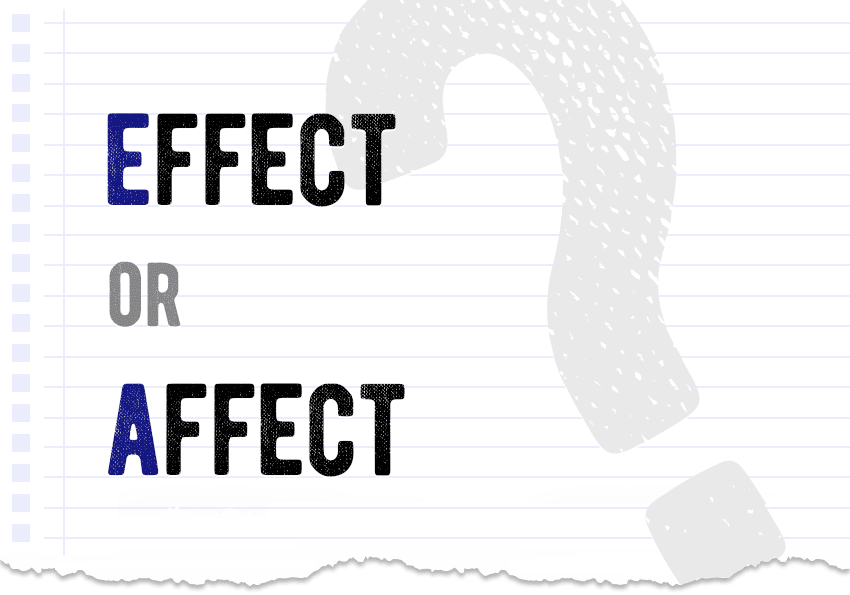Effect or affect – what is the difference?
In English there are many almost identical words which have completely different meaning. Two of frequently mistaken words are effect and affect. The most important difference between them is grammatical one. The word affect is a verb, while the word effect we can use as a noun or verb depending on the context.

Effect or affect – what is the meaning of these words?
Effect or affect – despite their seeming similarity, they have entirely different meaning. The synonymus to the word affect are: influence, touch or change while to the word effect are: achieve, enforce or realize.
Effect or affect – now it is all clear!
As you can see we use the word affect when we want to stress that one thing influence another or make a difference to something or someone. When it comes to the word effect it is usually used when we want to talk about the result of a particular action. Long story short these two words cannot be used interchangeably so when you want to use one of them in a phrase, make sure it suits the context.
Effect or affect – what are other forms of these words?
Let’s start with the word affect as it can function only as a verb. Obviously it cannot have a plural form, but we can create such forms as: affects (3rd person singular in the simple present) affecting (gerund).
The word effect can occur in a sentence as both verb and noun. When used as a noun it can appear as effect (singular) and effects (plural), which is also a form for 3rd person singular in the simple present.
Effect or affect – learn it by hear with following examples
He tried to sketch the streets of Lisbon, but he couldn’t get the effect he wanted on flat paper.
Carry On, Mr. Bowditch by Jean Lee Latham
At sunset I try to hypnotise her, but alas! with no effect; the power has grown less and less with each day, and to-night it fail me altogether.
Dracula by Bram Stoker
Conceivably this fact affected my casual pursuit of chemistry
Double Helix by James D. Watson


